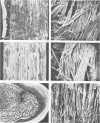Abstract
A screening procedure in which scanning electron microscopy was used indicated that 26 white rot fungi selectively removed lignin from various coniferous and hardwood tree species. Delignified wood from field collections had distinct micromorphological characteristics that were easily differentiated from other types of decay. The middle lamella was degraded, and the cells were separated from one another. Secondary cell wall layers that remained had a fibrillar appearance. Chemical analyses of delignified wood indicated that the cells were composed primarily of cellulose. Only small percentages of lignin and hemicellulose were evident. Delignified wood was not uniformly distributed throughout the decayed wood samples. White-pocket and white-mottled areas of the various decayed wood examined contained delignified cells, but adjacent wood had a nonselective removal of lignin where all cell wall components had been degraded simultaneously. This investigation demonstrates that selective delignification among white rot fungi is more prevalent than previously realized and identifies a large number of fungi for use in studies of preferential lignin degradation.
Full text
PDF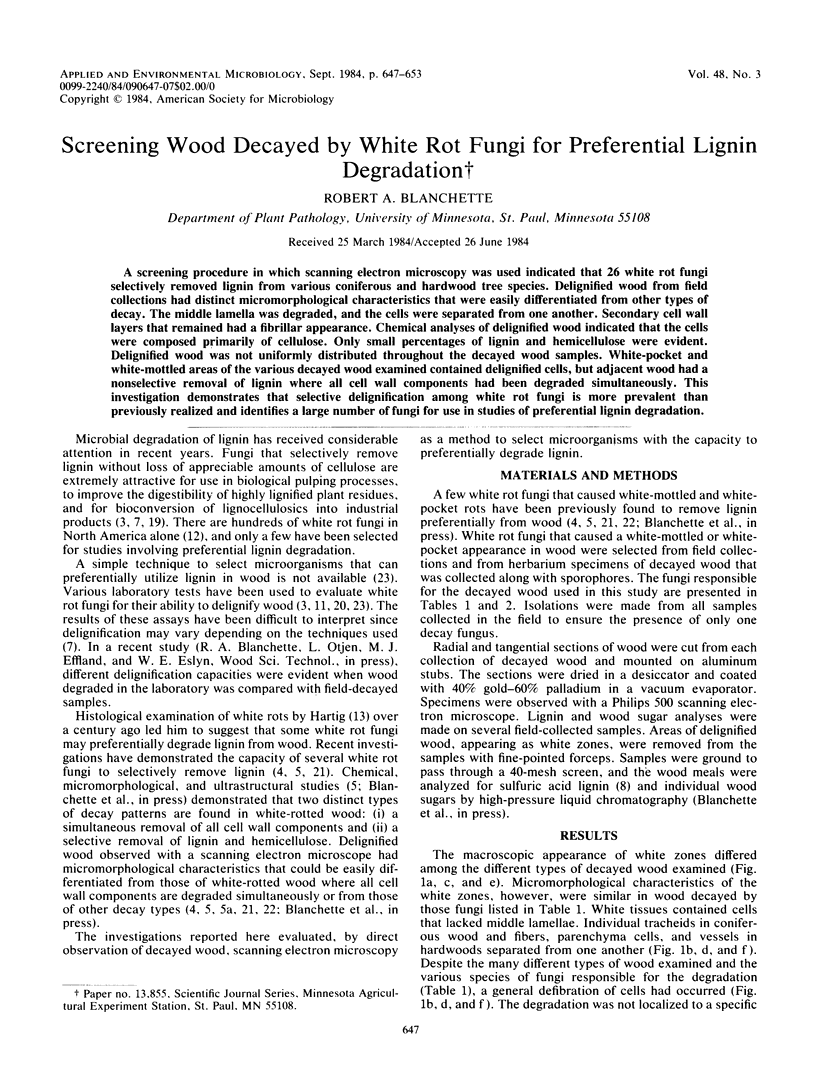
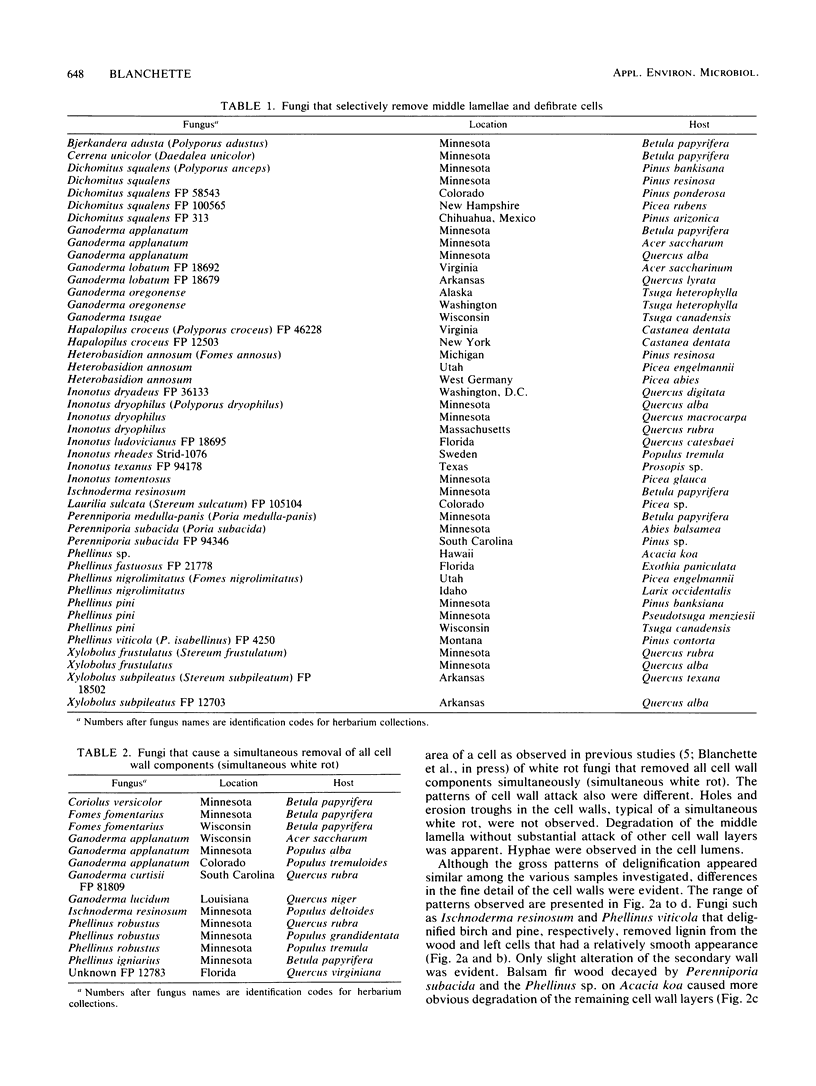
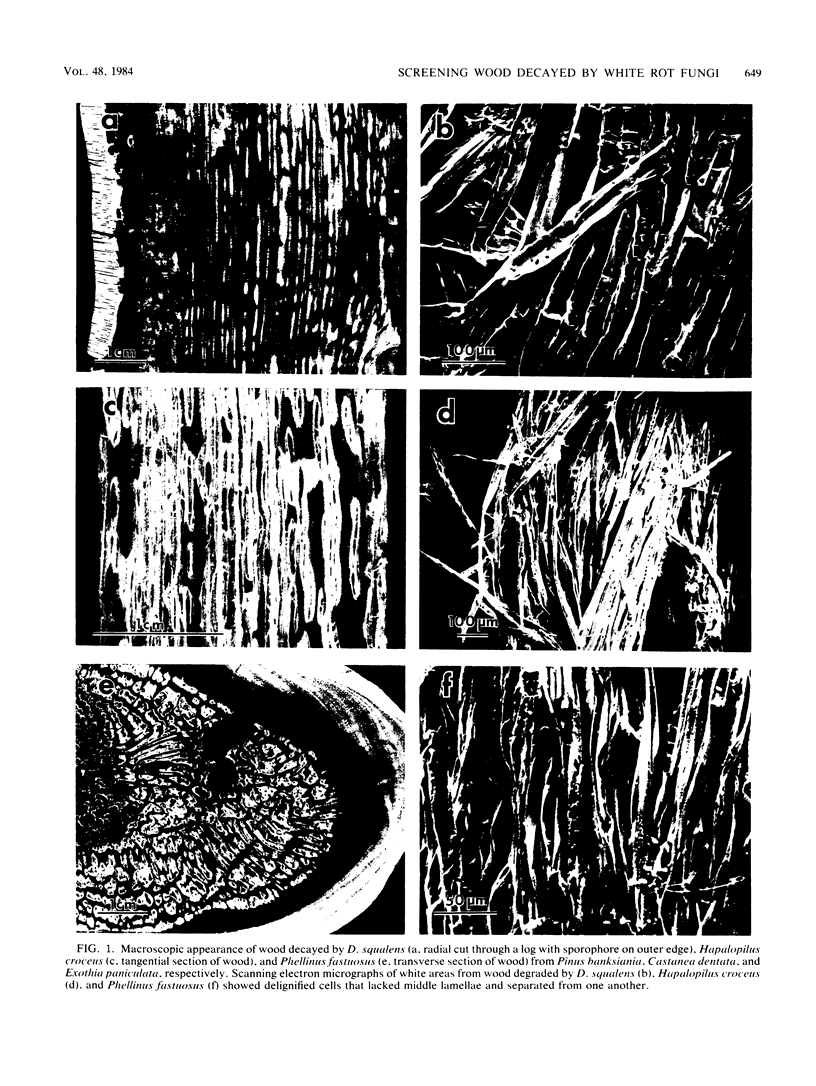
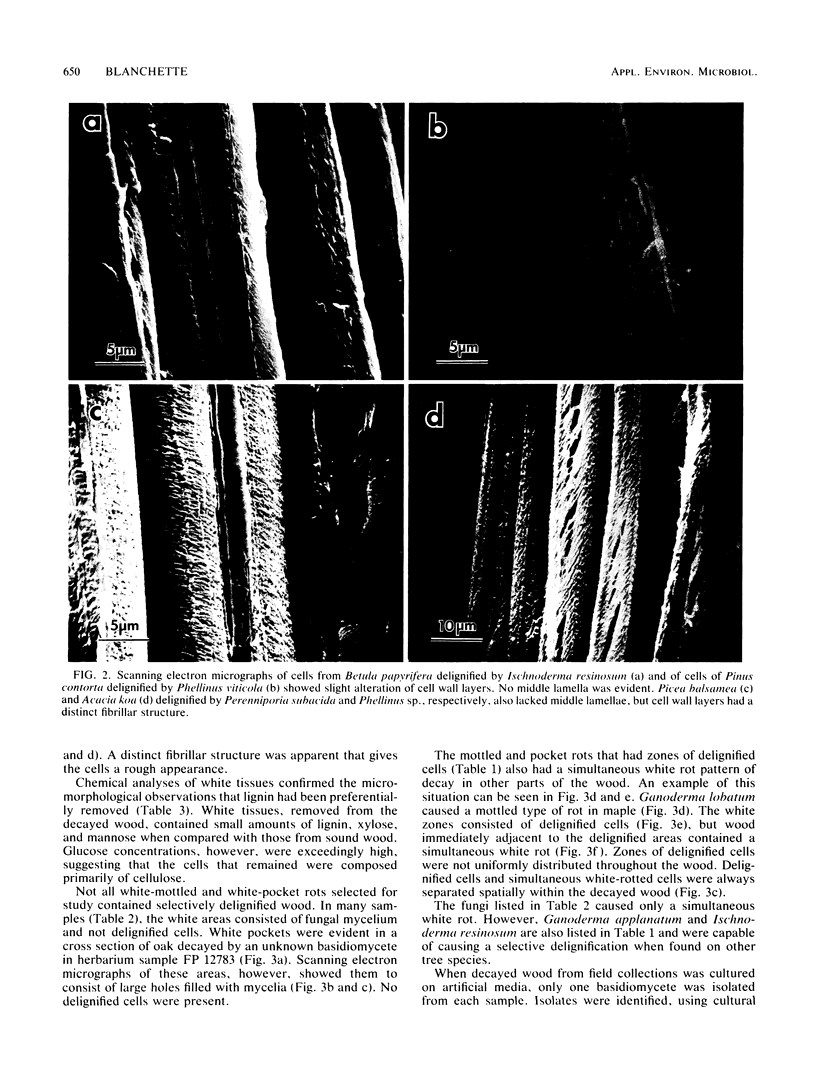
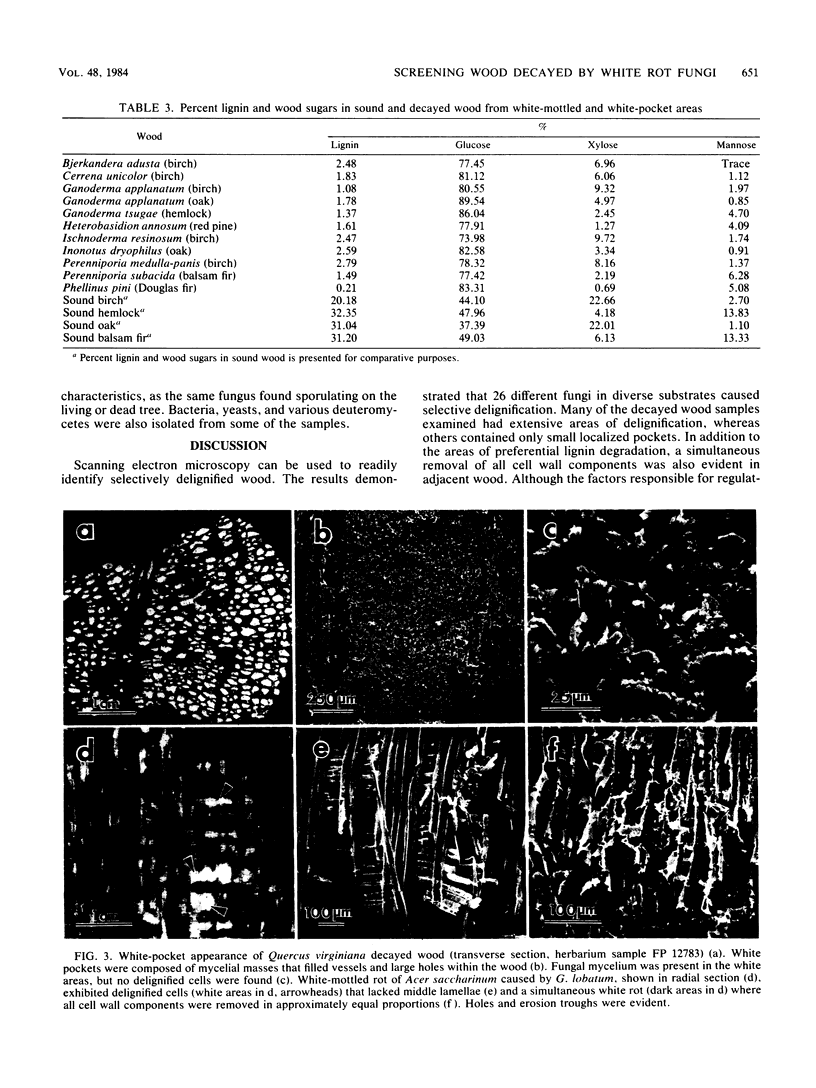
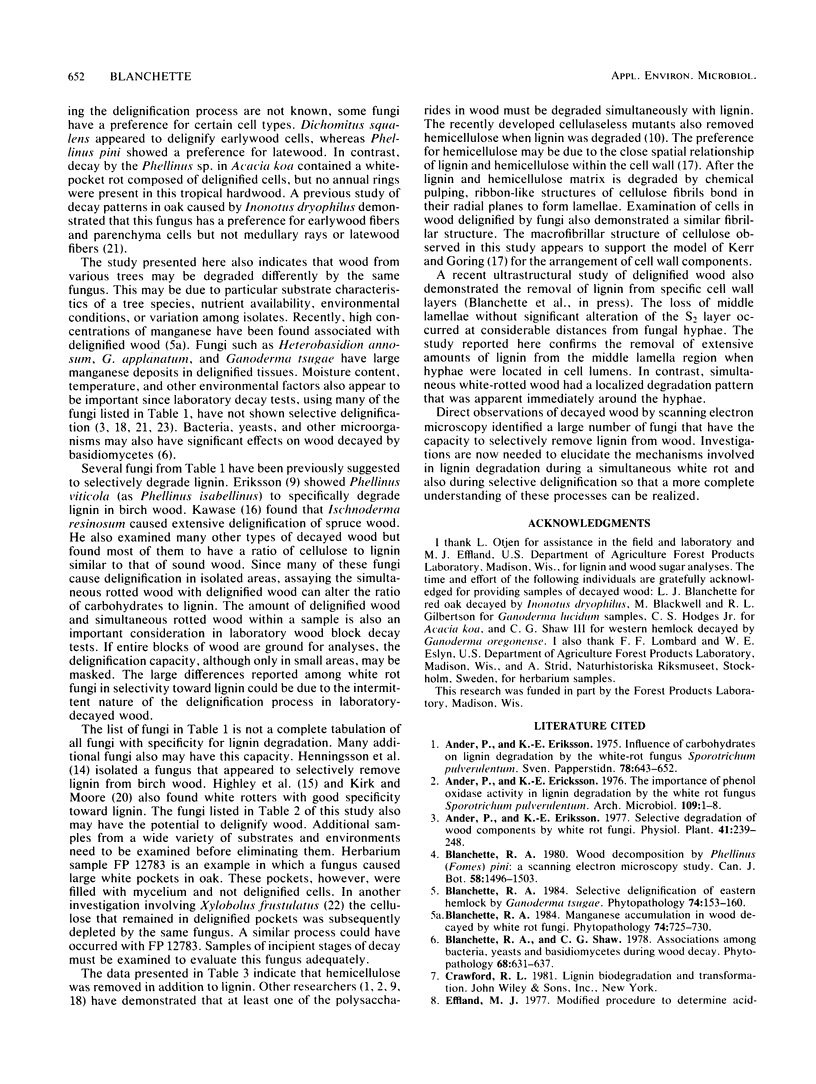
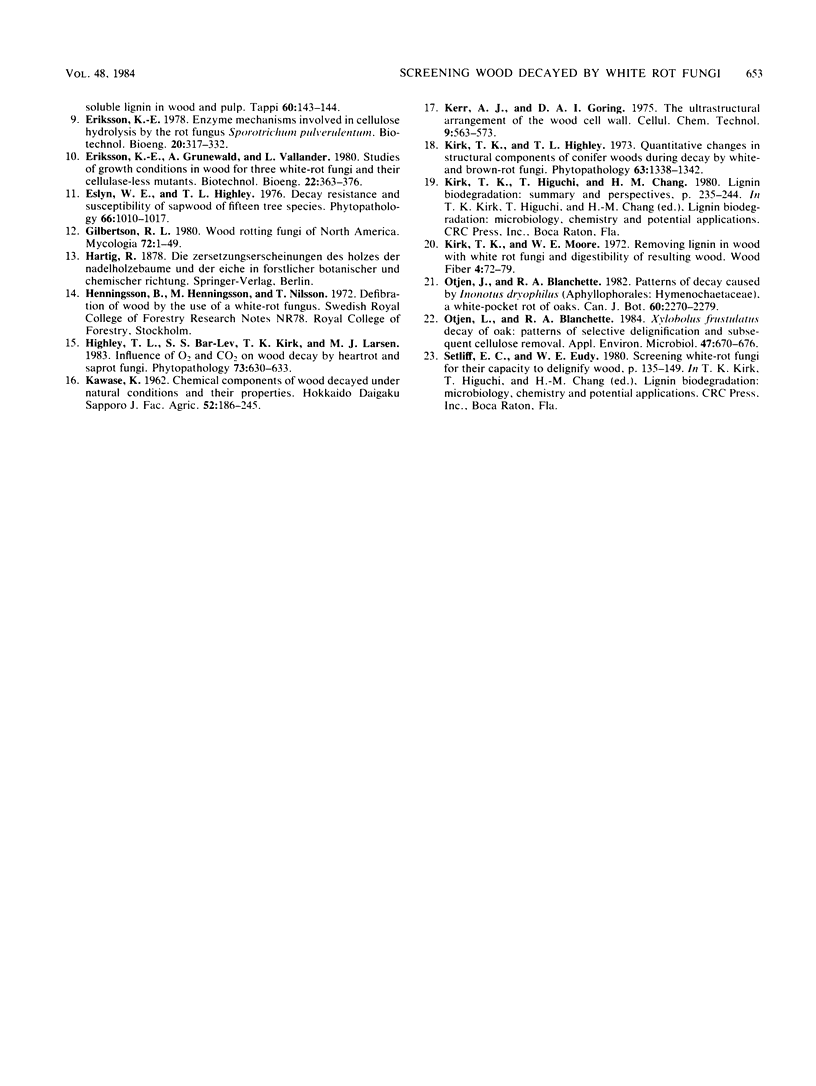
Images in this article
Selected References
These references are in PubMed. This may not be the complete list of references from this article.
- Otjen L., Blanchette R. A. Xylobolus frustulatus Decay of Oak: Patterns of Selective Delignification and Subsequent Cellulose Removal. Appl Environ Microbiol. 1984 Apr;47(4):670–676. doi: 10.1128/aem.47.4.670-676.1984. [DOI] [PMC free article] [PubMed] [Google Scholar]



